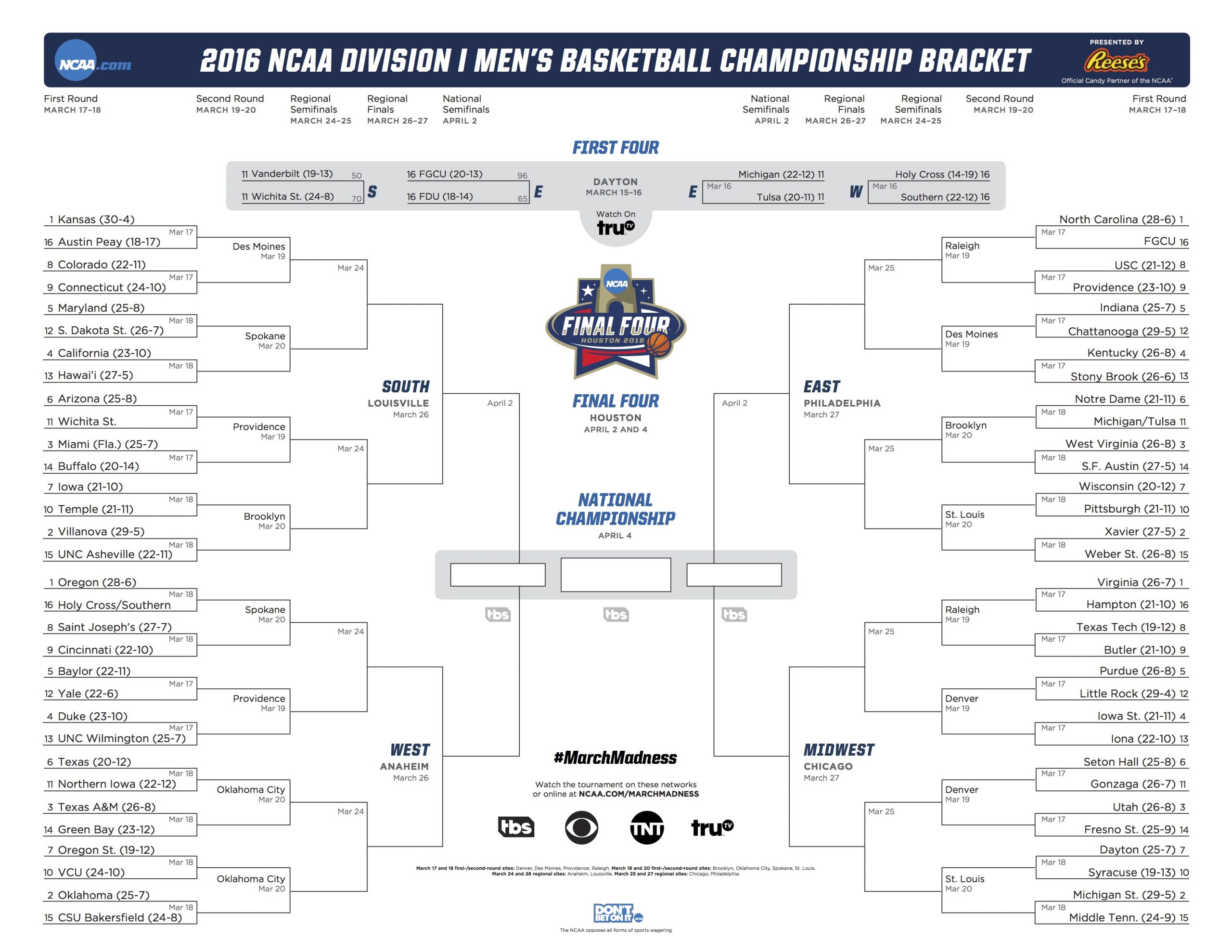March Madness has arrived, and as most of the nation scrambles to fill out their perfect bracket, a certain group of people has to exercise caution while doing so, NCAA student-athletes.
Anytime a student-athlete, competing in any division of the NCAA, is at risk to lose anything for a chance to win money off of a sport competition, collegiate or professional, they are in violation of the NCAA bylaws. So a student-athlete who enters their bracket in even a $1 pool is at risk for losing a whole year of athletic ineligibility.
In a 2012 anonymous study, the NCAA conducted among its student-athletes, it found that about 27 percent of male athletes had gambled on sports some way or another in the last year, and about five percent of females. While the NCAA is not going to be able to find and suspend 27 percent of their male student-athletes every year, there have been instances where the NCAA has brought the hammer down.
In 2003, it was discovered that Rick Neuheisel, then head football coach at the University of Washington, had entered a March Madness pool (a tournament the University of Washington basketball team was not competing in) with his neighborhood. The school and the NCAA found that this neighborhood pool was action for termination, which was interesting given that the University’s NCAA compliance officer had sent out an official memo to the athletic department that off-campus pools were allowed. Neuheisel subsequently sued, and won $4.3 million in the wrongful termination lawsuit. That’s probably a little more money than he would have won against those dads in his neighborhood.
The point is there’s big money in March Madness. Not only does the NCAA make $770 million off of the tournament TV deal alone, it is one of the busiest times of the year for gambling. In 2016 it is projected that more than $9 billion will be gambled on the tournament, as money changes hands, not just in Vegas,but also in office pools across the country. US companies are set to lose $4 billion worth of worker productivity during the first week of the tournament alone- but God forbid a D3 soccer player loses $3 to his uncle Jeff for the third year in a row.
Now, the NCAA’s sports wagering rules are in effect for a good reason. History has taught us that gambling and athletes don’t mix. Look what happened to Shoeless Joe Jackson and the 1919 White Sox throwing the series, or Pete Rose betting on his own games… but do Division 3 non-scholarship student-athletes, who have no plans on professional careers, who throw down $5 on a bracket with some high school buddies, deserve the same suspension as if they had been taking performance enhancing drugs? According to the NCAA, yes, and at Gustavus, it’s not worth the risk.
This year the Gustavus Campus Activities Board have sponsored a student bracket pool for free, so student-athletes will legally have a chance to win prizes, but won’t lose anything if they don’t win, especially their eligibility!
